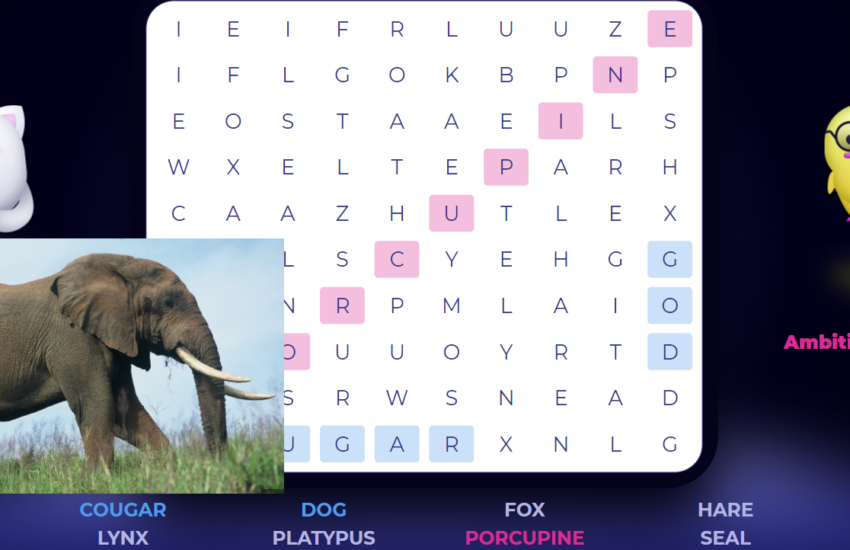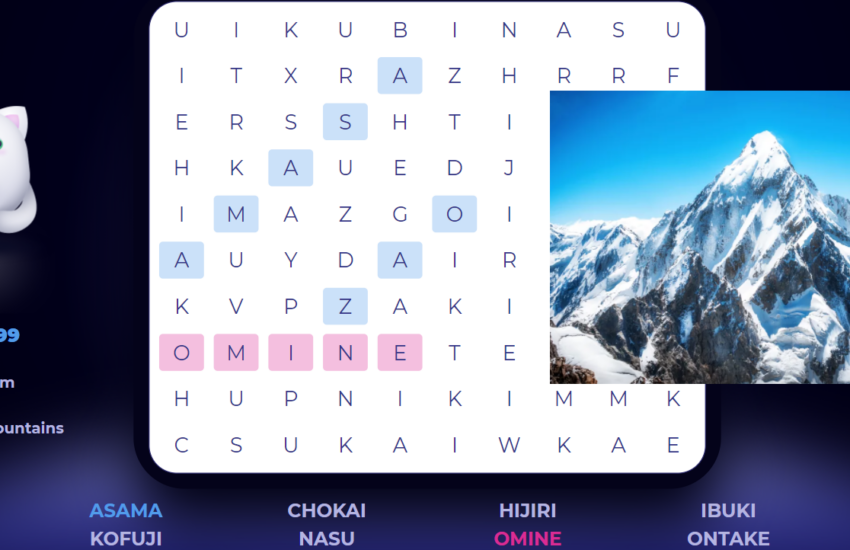8 Strategies to Help You Win Online Word Search Games
Spelling. Problem-solving. Memory. Vocabulary. These are just a few of the countless benefits of completing word searches. And for those seeking a paperless, eco-friendly experience, an online word search may be the way to go.
But nobody starts out as a professional. If you’re looking for a fun way to flex your brain muscles from the convenience of any device, read on for eight ways to speed up your word-finding skills.
Online Word Search: How It Works
Did you know that word searches are actually younger than the game of Scrabble and even crossword puzzles?
The word search as we know it first appeared in 1968, in a small Oklahoma paper called the Selenby Digest. The man credited with the invention is Norman Gibat, who submitted his puzzles to the digest.
Just like the old-fashioned word search, online word searches scramble up random letters, challenging you to find the hidden words. These words are often part of a theme, like “animals,” “vegetables,” or “outer space.”
But online word searches have made it easier than ever before to customize the challenge. You can find word searches of every size, category, and difficulty level. And if you’re not satisfied with the options available, you can even create your own.
Some online word searches have timers. Some encourage competition by keeping score. Others include special rules, like words jutting off into any direction, rather than keeping in a straight line.
No matter which word search tickles your fancy, there are several ways to conquer the challenge without scanning each individual column and row.
1. Check the Word List
Some people prefer not to use the word list beyond an initial glance. And if you’re already familiar with the themes of games, you may not need to check the word list very often.
However, using the word list does have its benefits. It helps you keep track of which words you’ve already found. It also reveals any variations of words or compound words, like “night” versus “nighttime.”
Lastly, the word list keeps you focused. You may occasionally run into a word that isn’t on the list. If you don’t check the word list often enough, you may end up with a ton of technically correct words, but none of the right words from the list.
2. Search for Multiple Words at Once
After checking your word list, try breaking it into sections. You might group your words together by similar letters, or you may just go in the order as they appear on the list.
Once you’ve identified a handful of words to look for, try repeating them to yourself out loud. It’ll help you remember what you’re looking for, and it’ll save you the time of going word-by-word.
3. Guide Your Eyes
You might think it’s impossible to guide your eyes without a pen or a pencil on paper. With online word searches, you can still use your cursor to trace the rows or columns you’re looking at.
Depending on the features of the game, you may even be able to use different colors to eliminate rows and columns that don’t contain words.
4. Start on the Edges
Almost every word search makes use of the edges, as these are the easiest places to fit words — especially the longer ones. Identifying words on the edges will make it easier to narrow your focus later on.
Scan the top, bottom, left, and right edges for vertical and horizontal words. If you notice any double or uncommon letters (more on those later), check every adjacent direction to see if you might’ve found a word.
5. Prioritize “Impossible” Words
We often wait until the end of the game before finding “impossible” words. As it turns out, these words may be easier to find than shorter ones. The more letters in each word, the more important the order of the letters becomes.
To find the impossible words first, you may need to scan row-by-row or column-by-column. If you find a potential letter or letters from the word, check in every adjacent direction. Soon enough, you’ll find the impossible word.
6. Look for Uncommon Letters
When focusing on letters, it’s easy to get lost in a sea of A’s, E’s, I’s, O’s, and U’s. This is because vowels appear in almost every word in the English language.
The trick is to spot the letters that stand out first. Research shows that V, X, Z, J, and Q are among the least-used in the English language. If you see these letters in your word search, chances are, it’s connected to one of the words in the word bank.
Tip: If you see a “Q” without a “U” in the word search, it can be disregarded. How many words can you name where a “Q” isn’t followed by a “U”?
7. Double Letters Are Your Friend
Repeating letters are another tell-tale sign of a word nearby. The most commonly used double letters include “LL,” “EE,” and “OO,” though you may find an occasional “BB” or “ZZ” somewhere in there, too.
Some double letters to ignore include “YY,” “XX,” and “QQ.” Notice a coincidence? These are the letters we identified as uncommon. You’ll be hard-pressed to find a repeating occurrence of these letters in a single word.
8. Change Your Perspective
Think you’ve hit a dead-end? You may need to rotate the puzzle upside down or 90 degrees. This orientation can help you find the trickier words that don’t read left-to-right.
And don’t forget to take a step back every once in a while, too. Once you’ve found a decent amount of words on your list, reexamine the puzzle as a whole — specifically near the words you’ve already found.
Chances are, some words may be right next to other words. They may be backward or upside down, or they might intersect or run parallel to the “found” words.
Search Smarter: Not Harder
Completing an online word search doesn’t have to be difficult. And with so many word search game benefits, it’s easy to understand why these puzzles are so addicting more than 50 years later!
Think you’re up for the challenge? Our Word Search Battle allows you to pick your own character, theme, and difficulty level.
The best part? It lets you compete against your friends and family, or practice solo online! Check it out today for free, customizable fun.


